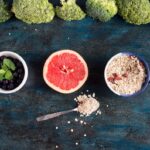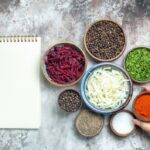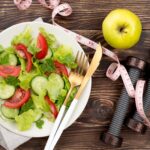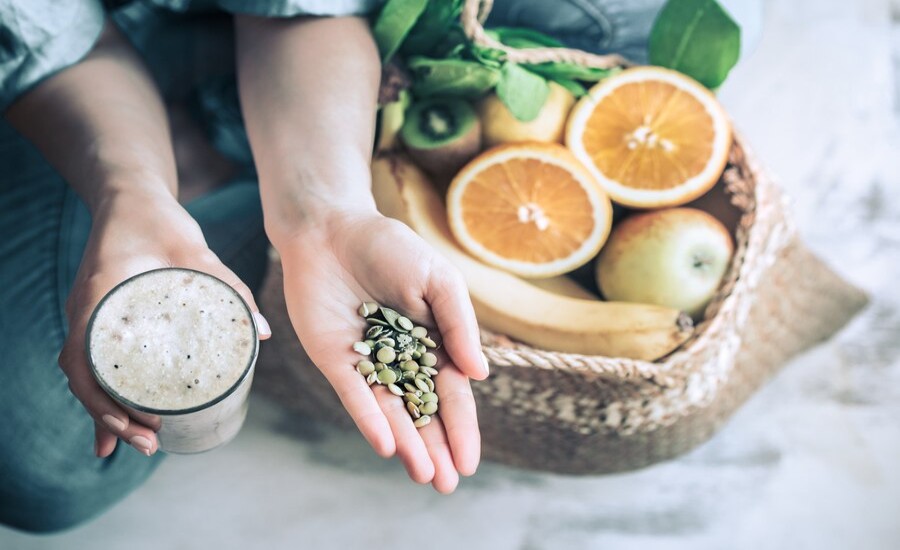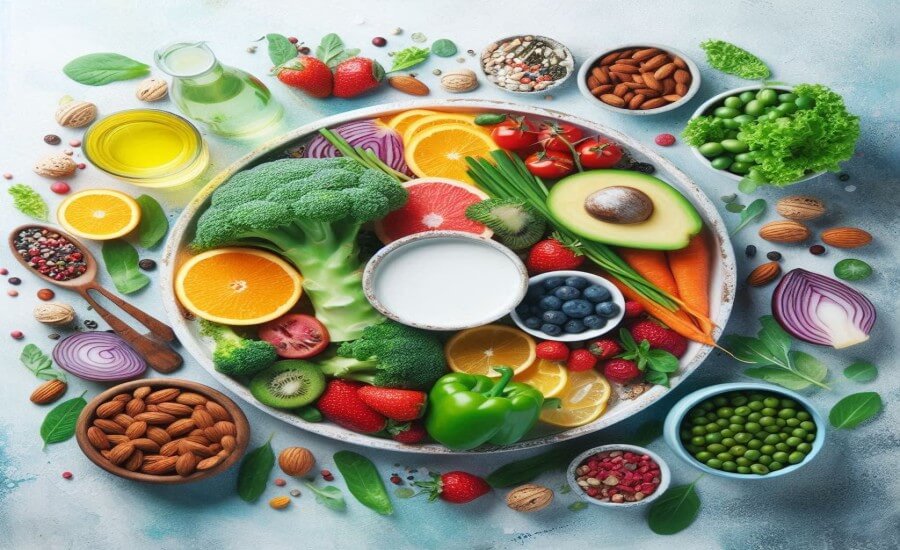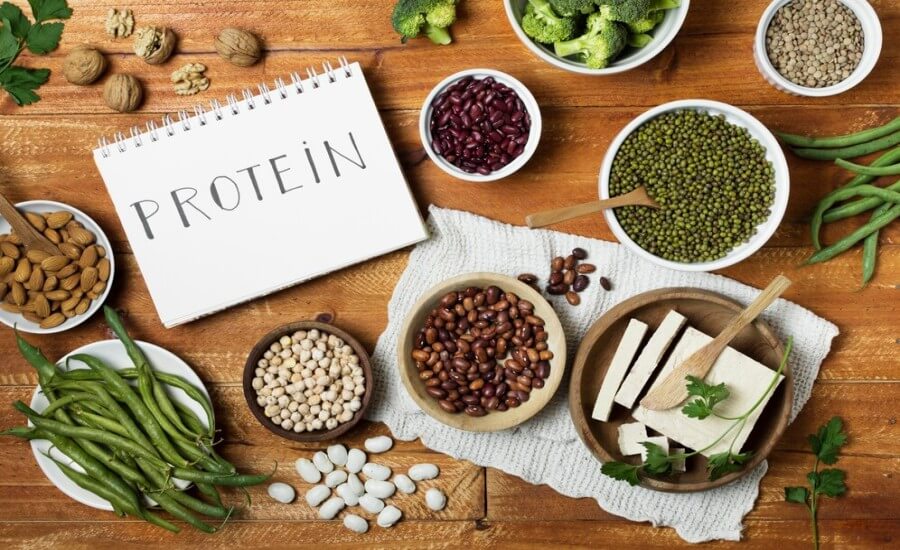You’ve embraced the incredible world of plant-based eating – fantastic! You’re likely feeling more energized, lighter, and aligned with your values. Vegan diets are celebrated for their myriad health benefits, ethical stance, and environmental friendliness – and rightly so! But let’s get real for a moment: while a well-planned vegan diet can be incredibly nutrient-rich, are there any potential nutritional gaps we should be aware of to truly thrive long-term?
The truth is, in today’s world, even the most conscientious eaters can sometimes fall short on certain nutrients, regardless of their dietary choices. However, for vegans, due to the exclusion of all animal products, a few key nutrients deserve extra attention to ensure you’re not just surviving, but vibrantly thriving on your plant-powered journey. This isn’t about negating the amazing benefits of veganism – it’s about empowering you with knowledge and practical tools to build the most balanced and robust vegan diet possible, leaving no nutrient stone unturned!
This blog post is your essential guide to vegan supplementation for optimal health. We’ll cut through the confusion, debunk common myths, and focus on the evidence-based supplements that can act as your nutritional “insurance policy,” ensuring you’re covering all your bases and unlocking your full vegan potential. Get ready to learn about the key nutrients to prioritize, understand why they matter, and discover how strategic supplementation can be a smart and proactive step towards a truly balanced and thriving vegan life!
Balanced Vegan Diet – Yes, It’s Possible! (But Awareness is Key for Long-Term Success
Let’s be crystal clear: a well-planned vegan diet can be incredibly balanced and provide all the nutrients you need to be healthy. Focus on whole, minimally processed plant foods – a rainbow of fruits and vegetables, legumes, whole grains, nuts, and seeds – and you’re on the right track.
However, in practice, several factors can make strategic supplementation a wise choice for many vegans:
- Nutrient Bioavailability: Some nutrients, while present in plant foods, may be less bioavailable (less easily absorbed and utilized by the body) compared to their animal-derived counterparts. For example, non-heme iron from plants is absorbed less efficiently than heme iron from meat.
- Modern Food System & Soil Depletion: Modern agricultural practices and soil depletion can sometimes affect the nutrient density of even plant foods. This is a broad concern, not just for vegans, but supplementation can help bridge potential gaps.
- Dietary Variety and Planning: While variety is key to a balanced vegan diet, it can take conscious planning and effort to consistently ensure you are consuming a wide enough range of nutrient-rich plant foods to meet all your needs, especially in a busy modern lifestyle.
- Individual Needs & Life Stages: Nutrient requirements vary based on age, sex, activity level, pregnancy, lactation, and individual health conditions. Supplementation can help tailor nutrient intake to specific individual needs at different life stages.
- Geographical Location & Sunlight Exposure: Vitamin D synthesis from sunlight depends on geographical location and skin pigmentation. Supplementation is often recommended for many populations, including vegans, especially in regions with limited sunlight or during winter months.
The goal of vegan supplementation isn’t to replace a whole-foods vegan diet, but to complement it. Think of supplements as a nutritional safety net, ensuring you’re consistently getting the nutrients that can be more challenging to obtain optimally through diet alone in a vegan context.
The “Essential Five” – Vegan Supplements to Seriously Consider for Optimal Health
Here are the top five supplements that evidence and expert consensus suggest are most important for vegans to consider, to ensure a truly balanced and thriving diet:
1. Vitamin B12: The Absolute Non-Negotiable (Crucial for Nerve Health & Energy)
- Why It’s Essential: Vitamin B12 is crucial for nerve function, red blood cell formation, and DNA synthesis. B12 deficiency can lead to serious and irreversible neurological damage, fatigue, anemia, and other health problems.
- Vegan Food Sources? Not Reliable: Vitamin B12 is notreliably found in plant foods. Claims of B12 in certain fermented foods or seaweeds are often unreliable and insufficient to meet human needs. Animal products are the primary source of dietary B12 because animals obtain it from bacteria in their gut or through supplementation.
- Recommendation: Supplementation is a Must for Vegans: Vitamin B12 supplementation is notoptional for vegans; it is essentialfor long-term health. There is no getting around this scientific reality.
- Form & Dosage: Cyanocobalamin and methylcobalamin are common and effective forms. Recommended daily intake varies but often ranges from 25-100 mcg daily, or 1000 mcg 2-3 times per week. Consult with a healthcare professional for personalized recommendations. Look for sublingual (under-the-tongue) options for potentially better absorption.
2. Vitamin D: Sunshine Vitamin – Often Needed, Especially in Winter Months (Bone Health, Immunity, Mood)
- Why It’s Important: Vitamin D is crucial for calcium absorption, bone health, immune function, mood regulation, and potentially other aspects of health. Vitamin D deficiency is widespread in many populations, not just vegans.
- Vegan Food Sources? Limited: Vegan food sources of vitamin D are limited. Some mushrooms grown under UV light and fortified foods (some plant milks, cereals) contain vitamin D2. Vitamin D3 is generally considered more effective at raising blood levels and is often derived from lichen for vegan options.
- Sunlight Exposure – Not Always Sufficient: Sunlight is the primary source of vitamin D, but factors like geographical location, season, skin pigmentation, sunscreen use, and indoor lifestyle can significantly reduce vitamin D synthesis from sunlight.
- Recommendation: Consider Supplementation, Especially in Winter or Limited Sunlight Exposure: Many health organizations recommend vitamin D supplementation for the general population, especially during winter months or for those with limited sun exposure. Vegans, like others, may benefit from vitamin D supplementation, particularly D3 from lichen.
- Form & Dosage: Vitamin D3 (vegan form from lichen) is generally preferred. Dosage recommendations vary widely based on individual needs and vitamin D blood levels. Consult with a healthcare professional to check your vitamin D levels and determine appropriate supplementation, often ranging from 1000-4000 IU daily or higher depending on deficiency.
3. Omega-3 Fatty Acids (Specifically DHA & EPA): Brain & Heart Power – Consider Algae-Based Sources (Brain Health, Heart Health, Inflammation)
- Why They’re Important: Omega-3 fatty acids, particularly DHA (docosahexaenoic acid) and EPA (eicosapentaenoic acid), are crucial for brain health, heart health, eye health, and reducing inflammation.
- Vegan Food Sources? ALA Conversion – Limited: Vegan diets can provide ALA (alpha-linolenic acid), a precursor to EPA and DHA, from flaxseeds, chia seeds, walnuts, and hemp seeds. However, the conversion of ALA to EPA and DHA in the body is often inefficient and can be influenced by various factors. Meeting optimal DHA and EPA levels through ALA conversion alone can be challenging for some individuals.
- Recommendation: Algae-Based DHA/EPA Supplements for Direct Source: Consider algae-based DHA/EPA supplements for a direct and reliable vegan source of these crucial omega-3s. Algae is the original source of omega-3s found in fish oil (fish get it from eating algae). Algae-based supplements are sustainable and avoid the ethical and environmental concerns associated with fish oil.
- Form & Dosage: Look for algae-based DHA and EPA supplements. Dosage recommendations vary, but often range from 250-500 mg combined DHA/EPA daily or higher, depending on individual needs and dietary ALA intake. Consult with a healthcare professional for personalized recommendations.
4. Iodine: Thyroid Function & Metabolism – Ensure Adequate Intake (Thyroid Health, Metabolism, Hormone Regulation)
- Why It’s Important: Iodine is essential for thyroid hormone production, which regulates metabolism, growth, and development. Iodine deficiency can lead to hypothyroidism, goiter, and other health problems.
- Vegan Food Sources? Variable – Sea Vegetables, Fortified Salt: Vegan food sources of iodine are somewhat variable. Sea vegetables (seaweed, nori, kelp, wakame) can be good sources, but iodine content can fluctuate widely depending on the type of seaweed, growing location, and preparation methods. Iodized salt is another source, but excessive salt intake is generally discouraged for overall health.
- Recommendation: Consider Supplementation or Strategic Seaweed Intake: Consider a small iodine supplement (especially if not regularly consuming sea vegetables) or strategically including sea vegetables like nori sheets in your diet a few times per week to ensure adequate intake.
- Form & Dosage: Potassium iodide is a common form. Recommended daily intake for adults is around 150 mcg. Small iodine supplements providing 75-150 mcg daily are often sufficient. Be cautious with kelp supplements as iodine content can be very high and potentially lead to excessive intake. Iodized salt, used in moderation, can also contribute to iodine intake.
5. Calcium (Potentially): Bone Health – Assess Your Diet & Consider Fortification/Supplementation (Bone Density, Muscle Function)
- Why It’s Important: Calcium is crucial for bone health, muscle function, nerve transmission, and blood clotting. Adequate calcium intake throughout life is essential for maintaining strong bones and preventing osteoporosis.
- Vegan Food Sources? Abundant but Bioavailability Matters: Vegan diets can be rich in calcium from sources like fortified plant milks and yogurts, tofu (calcium-set), leafy green vegetables (though bioavailability varies), almonds, sesame seeds, and calcium-fortified foods.
- Absorption Considerations: While calcium is present in plant foods, the bioavailability (absorption rate) can be affected by factors like phytates and oxalates in certain plant foods. However, overall calcium intake and vitamin D status are key determinants of calcium balance.
- Recommendation: Assess Dietary Intake & Consider Fortification/Supplementation if Needed: For many vegans consuming a varied diet rich in calcium-rich plant foods and fortified options, supplementation may not be universallyessential. However, assess your dietary intake of calcium-rich foods. If intake is consistently low, or if you have risk factors for osteoporosis or low bone density, consider calcium supplementation or prioritize fortified plant foods.
- Form & Dosage: Calcium carbonate and calcium citrate are common forms. Recommended daily intake for adults is around 1000-1200 mg. If supplementing, consider taking calcium in divided doses throughout the day for better absorption and choose calcium citrate if you have digestive issues or take antacids. Ensure you are also getting adequate vitamin D, which is crucial for calcium absorption.
Beyond the “Essentials” – Other Supplements to Consider (Based on Individual Needs & Lifestyle)
While the “essential five” are generally considered most important for vegans, other supplements may be beneficial for certain individuals based on their specific needs, dietary habits, and lifestyle factors:
- Iron: While plant foods are rich in non-heme iron, absorption can be less efficient. Individuals prone to iron deficiency (e.g., menstruating women, athletes) may consider iron supplementation, but iron levels should be checked by a doctor before supplementing, as excessive iron can be harmful. Vitamin C-rich foods enhance non-heme iron absorption – prioritize these at meals.
- Zinc: Zinc from plant sources may have slightly lower bioavailability. Individuals with potential zinc deficiency risk (e.g., those with digestive issues, older adults) or those not consistently consuming zinc-rich plant foods (nuts, seeds, legumes, whole grains) might consider zinc supplementation.
- Vitamin K2: Vitamin K2 plays a role in bone health and calcium utilization, working synergistically with vitamin D and calcium. While vitamin K1 is abundant in leafy greens, vitamin K2 is less common in plant foods (natto is a vegan source, but not widely consumed). Vitamin K2 (MK-7 form) supplementation may be considered, especially for bone health, but research is ongoing.
- Creatine: Creatine is primarily found in animal products and is important for muscle energy and strength. Vegan athletes or individuals seeking to optimize muscle performance may consider creatine monohydrate supplementation. It’s well-researched for safety and effectiveness.
- Beta-Alanine: Another supplement primarily relevant to vegan athletes. Beta-alanine is an amino acid that can improve muscle endurance.
Vegan Food First – Supplements are the “Insurance Policy,” Not the Foundation!
It’s crucial to reiterate: supplements are meant to complement a healthy, whole-food vegan diet, not replace it! Prioritize building your diet around a diverse array of nutrient-rich plant foods. Supplements are there to bridge potential gaps and provide an extra layer of nutritional assurance, not to compensate for a poorly planned or overly processed vegan diet.
Practical Tips for Choosing Vegan Supplements Wisely:
- Third-Party Tested: Choose supplements that are third-party tested for purity and potency (e.g., NSF, USP, Informed-Choice). This ensures you’re getting what’s on the label and that the product is free from contaminants.
- Vegan Certified: Look for vegan certifications to ensure the supplement is truly vegan-friendly (capsules, ingredients, etc.).
- Bioavailable Forms: Opt for bioavailable forms of nutrients where applicable (e.g., methylcobalamin or cyanocobalamin for B12, vitamin D3 from lichen, calcium citrate).
- Start with the Essentials: Focus on the “essential five” first, and then consider other supplements based on your individual needs and dietary assessment.
- Consult a Healthcare Professional or Registered Dietitian: Especially if you have underlying health conditions, are pregnant or breastfeeding, or have concerns about nutrient deficiencies, consult with a doctor or registered dietitian experienced in vegan nutrition for personalized advice and blood testing.
Debunking Vegan Supplement Myths: Separating Fact from Fiction for Informed Choices
Let’s address some common myths and misconceptions about vegan supplements:
- Myth: “If you need supplements, veganism is unnatural/unhealthy.”
- Fact: Supplementation is common across many dietary patterns, not just veganism. Many nutrients are challenging to obtain optimally from modern diets in general, regardless of dietary label. Vegan supplements are a tool to optimize health and bridge potential gaps, just like supplements can be beneficial for omnivores. It’s about proactive health management.
- Myth: “All vegan supplements are expensive/unnecessary.”
- Fact: While some supplements can be costly, essential supplements like B12 and vitamin D are generally very affordable. And while not absolutely necessary in every single case for every vegan (depending on diet planning and individual needs), they provide valuable nutritional insurance and peace of mind for many. Think of it as a small investment in long-term health.
- Myth: “You can get all nutrients from plant foods if you just eat ‘perfectly’.”
- Fact: While meticulous diet planning can minimize the need for supplements, realistically, reliably obtaining optimal levels of certain nutrients like B12, DHA/EPA omega-3s, and sometimes vitamin D, iodine, and calcium can be challenging for many vegans through diet alone in the long run. Supplements can provide a practical and consistent way to ensure adequate intake, especially given the factors of modern food systems and individual variability.
Sample Vegan Supplement Starter Plan (General Example – Not Medical Advice):
- Daily:
- Vitamin B12 (Cyanocobalamin or Methylcobalamin): 25-100 mcg daily or 1000 mcg 2-3 times per week.
- Vitamin D3 (Vegan from Lichen): 1000-2000 IU daily (adjust based on sun exposure and blood levels – ideally check levels with doctor).
- Vitamin B12 (Cyanocobalamin or Methylcobalamin): 25-100 mcg daily or 1000 mcg 2-3 times per week.
- Consider Daily (Especially if not regularly eating sea vegetables):
- Iodine: 75-150 mcg (from potassium iodide supplement or nori sheets).
- Iodine: 75-150 mcg (from potassium iodide supplement or nori sheets).
- Consider Daily (Algae-Based):
- DHA/EPA Omega-3: 250-500mg combined DHA/EPA (or based on dietary ALA intake).
- DHA/EPA Omega-3: 250-500mg combined DHA/EPA (or based on dietary ALA intake).
- Assess Diet & Consider (If intake is consistently low):
- Calcium: If dietary calcium intake is consistently low, consider calcium citrate supplement (divided doses, with vitamin D).
- Iron & Zinc: Only supplement if deficiency is diagnosed by a healthcare professional.
- Calcium: If dietary calcium intake is consistently low, consider calcium citrate supplement (divided doses, with vitamin D).
Level Up Your Vegan Life – Balanced, Vibrant, and Supplement-Smart!
Embracing a vegan diet is a powerful choice for your health, the planet, and animals. And by being informed and proactive about essential vegan supplements, you can take your plant-based journey to the next level, ensuring you’re not just eating vegan, but thriving vegan – with sustained energy, vibrant health, and complete nutritional confidence.
It’s about embracing a balanced approach – delicious plant foods as your foundation, and strategic supplements as your personalized nutritional insurance policy. Ready to level up your vegan glow and unlock your full plant-powered potential?
Are you currently taking any vegan supplements? What questions do you have about vegan supplementation or balanced vegan nutrition? Share your thoughts, experiences, and questions in the comments below! Let’s build a community of informed and thriving vegans, supporting each other on our journeys to vibrant, plant-powered well-being!
To Your Balanced & Thriving Vegan Life!
